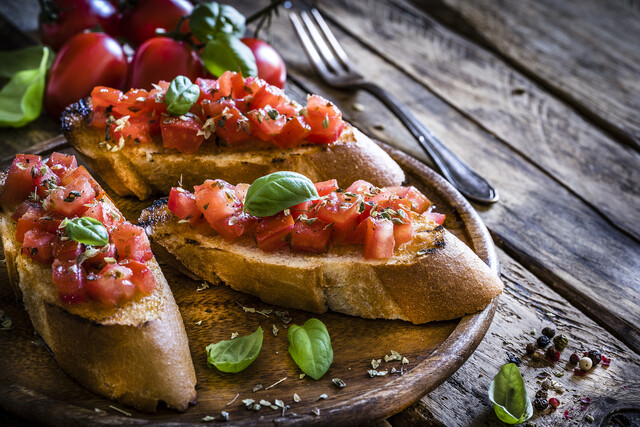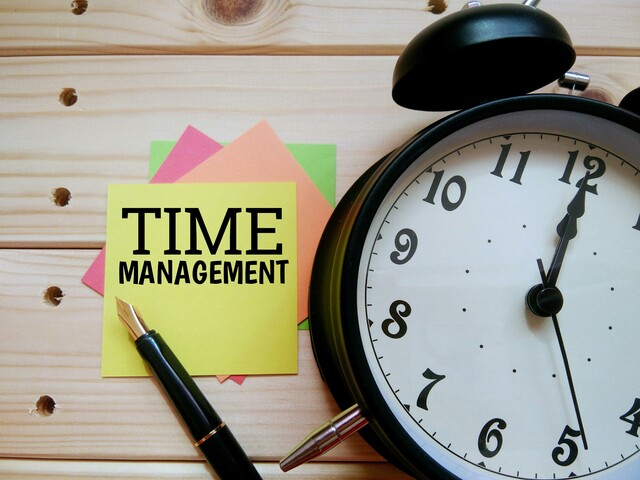Laws concerning sanitation, safety, and liability vary from state to state, and even from county to county. Make sure you know the legal requirements for your vicinity by contacting your local health department, city or state restaurant association, or National Restaurant Association at 202-331-5900.
Sanitation begins with you and your staff members. To eliminate germs and unsanitary practices:
1) Employees should wash their hands before work, after smoking, or after contacting food, hair, money or dirty dishes. Soap or hand sanitizer must be used and the water must be as hot as tolerable. Twenty seconds (the length of the "Happy Birthday" Song) is the minimum time for hand washing.
2) Any cuts or sores must be bandaged immediately and properly.
3) No employee with a communicable disease should be in contact with food. (As a manager, you may think you need every warm body available, but a sick employee in the restaurant quickly becomes two, four, and eight sick employees, plus perhaps a few dozen sick diners.)
4) If struck by a need to sneeze, an employee should sneeze into their shoulder (which is normally farther away from any food) rather than into their hands.
5) To eliminate cross-contamination, any food preparation area must be sanitized before another food is prepared (along with the prep cook's hands).
6) Foods must be stored at the proper temperatures. Any temperature between 41 and 140 degrees is considered the danger zone, where bacteria are able to grow.
7) Foods must be stored in airtight containers using the FIFO (First-In, First-Out) method to ensure freshness.
8) Employees directly involved in the preparation of food should wear gloves and hair nets.
9) All pots, pans, plates, glasses, and cutlery should be thoroughly cleaned with a combination of hot water, detergent and sanitizer.
There is a difference between food poisoning and food illness. Food poisoning occurs when there is a toxin present in the food; this will cause the diner to feel ill immediately. Food-borne illness occurs when a bacteria or virus enters the diner's system and reproduces to the point of causing illness. This takes time to occur, so food illness rarely manifests itself during the meal.
Should a guest (or an employee) become ill in the restaurant, don't jump to conclusions. It may be a food-borne illness, but it also might be from eating too much rich food, heat exhaustion, dehydration, or some other cause altogether. Regardless of the reason, the guest needs your immediate attention and concern. If the guest needs to lie down, find a space in an office or another part of the restaurant. Record the guest's name, address, and phone number; what they ate or drank; and find out if anyone else in the party is ill as well. If necessary, offer to call the guest an ambulance. (The Walt Disney World company has a standing policy that employees need to offer a guest an ambulance three times, AND hear "No" each of the three times before they stop offering.) Alert the kitchen of what the guest ate and drank and have the chefs inspect any remaining portions.
Never say anything that implies you or the restaurant is to blame for the illness, but be very concerned. Offer to reimburse the meal or offer a gift certificate. Follow the same procedures should a diner call back after a meal, complaining of illness. Find out all the relevant information and do a follow-up investigation, resolving to call the guest back at its conclusion. If multiple incidents occur in a short time, you might wish to close the kitchen early and thoroughly inspect all food stocks, preparation areas and storage units.
In the event of an allergy, a restaurant and its employees can only be liable if the patron communicates their allergy to their server. Once they do communicate it, the staff must ensure that the allergic item be kept well away from the guest, including from a cross-containment area (a guest may be allergic to shrimp, and so order the fried chicken; but if your kitchen broils chicken and shrimp in the same vat, a reaction can still occur.) Between the wait staff and the Back of the House, all employees must double-check the ingredients of the item in question before allowing the guest to consume it. As the most common allergies are nuts, soy, milk, shellfish, wheat, and eggs, you can be proactive and list what entrées contain these items in your menu.
(For minor spills -- in the event of stained clothing, a glass of club soda and napkin can remove the stain. Otherwise, it is customary for a restaurant to cover the cleaning bill for spills on a guest's clothing that they themselves did not cause.)
If a guest does hold the restaurant liable for a food-borne illness, or choking on a foreign object, they must prove the following:
A) Injury occurred to the plaintiff;
B) The injury was caused by some defect in the product;
C) The defect was present in the product when the defendant had control over it.
As stated previously, some states and counties have liability laws that hold liquor sellers accountable for results of intoxication. Again, common sense and strict adherence to service policies can keep this from happening in the first place.
Unfortunately, a restaurant business can be held "vicariously liable" for the business, and sometimes even the intentional wrongdoing of employees when they are acting on behalf of the business. If an employee is set out to collect supplies and is involved in a car accident that is their fault, both your business and the employee can be held legally liable. If you decide it is worth the risk, you should seriously consider obtaining liability insurance.
Other situations may arise in which employees, themselves, bring suits against employers. Again, an ounce of prevention is worth a pound of cure. Lawsuits are brought against employers mostly for mostly the following reasons:
A) Discrimination in the hiring process (this is rare in the restaurant industry), or in the workplace itself, due to age, race, sex, religion national origin, or disabilities
B) Sexual harassment
C) Failure to pay overtime
D) Interfering with workmen's compensation claims
E) Interfering with the Family And Medical Leave Act (FMLA), which allows employees to take 12 weeks of unpaid leave each year for certain medical or family reasons, as long as they have worked for the employer for one year and meet with certain other eligibility requirements
F) Wrongful termination. Wrongful termination cases fall into four general categories. As an employer, you may not legally terminate an employee's job for the following reasons:
1. Refusing to commit an unlawful act;
2. Performing a public obligation such as jury duty or military duty
3. Exercising a statutory right, such as filing a claim for worker's compensation
4. Discrimination.
For claims of discrimination or harassment from employees, a zero tolerance standard will best protect employers. Employee handbooks should contain all company policies against sexual harassment, offensive behaviors and the like. Complaints and appeals procedures should direct employees to someone other than their immediate supervisor, first verbally, and then in writing.
But ultimately, if you're a good manager, you need not fear any of this. Good managers don't discriminate. They don't need to harass or cheat their employees, or fire them for the wrong reasons, or warp the law to their will. You hopefully won't have to worry about liability suits either, because you're devoted to a healthy and safe work environment.
These are the fundamentals. Pour your personal work ethic, personality, and passion into the melting pot of your workplace, and VOILA! MANAGER SUPREME!
Once you've discovered when your traditionally "slow" periods (or seasons) are, you'll need to get creative to maximize revenue. A seaside resort in winter will probably go ignored, unless you reach out to local residents. Regular specials of your top-selling items during your slower periods of the week can build up a loyal customer base 0-- although, for many restaurants, when they have "special" entrées, they're normally ingredients that are about to expire and must be sold in a hurry. Events, such as lectures, a table side cooking class, live entertainment, dating programs, ladies' nights and whatever else you can think of will make your operation stand out. There may be added costs, but you'd have a roomful of guests paying slightly less, rather than one table of two guests paying full price.
Some larger chain restaurants have eschewed traditional advertising for "frequent diner programs," which offer bonuses to ensure return visits: free appetizers and desserts, buy-one/get-one specials, coupons for birthdays and anniversaries, and more. In merely signing up for the program (which can bring in some additional revenue by its purchase), guests also supply demographic information that is usable to your company. This can be yours for the staggering cost of card stock, a printer, and a lamination machine.
Cooperative programs with local merchants can yield new guests as well -- and you can be the ambassador that makes it happen in your community. Do you have a favorite golf course; a favorite spa or gym; or a favorite theater? Offer to "do lunch" at your place with their own managers for a possible "Free dinner at Chez Nous with "hole in one/new membership/season passes."
You may be one of those particular managers who is a genius at finance, but rather bankrupt in creativity. That's no problem; reach out to your staff! Servers are in constant communication with your guests, and are probably always hearing, "Your place would be so much better, if you'd only offer _________." Meanwhile, six of your chefs are going mad with boredom flipping burgers and are dying to create their favorite entrées for specials, but might be too reserved to let you know about them. Two of your hosts are going to college for marketing, and have told you that during their interviews, but their creative juices are stagnating as they ask, "How many?" for the thousandth time. A staff-wide brainstorming session (and party!) can yield scores of great new ideas, making Chez Nous the place to BE!
Once your restaurant is established -- or even beforehand -- don't be shy about selling merchandise: T-shirts, baseball caps, key chains, specialty glasses, lanyards, sunglasses, postcards; but profit margins might be larger if you have them created through a different supplier. If your restaurant has a unique sauce or dressing, you might wish to sell it as a retail item.
The more sales-savvy servers will normally do this anyway to increase their tips, but increasing sales per guest can -- and should -- be done invisibly, so guests don't feel they're being fleeced. An initial spiel promoting the highest-priced items on your menu can seem like a transparent attempt to grab a guest's every last dime, and the final check's sticker shock might cost you repeat business from that guest. Below are some ideas to maximize individual guest sales:
1) Ensure your servers offer a unique beverage, appetizer, entrée and dessert in every spiel.
2) Offer enough vegetarian and vegan alternatives to make your venue attractive to those particular guests. Also, offer non-alcoholic beers and virgin cocktails.
3) When a new liquor, wine, beer, or energy drink is introduced to the market, contact the parent company and suggest a debut marketing event at your venue.
4) If your restaurant sells wine, capitalize on it. Many servers unfortunately know nothing about wine and only sell it incidentally. If you offer wine training for your service staff, they will sell more wine by being able to promote it, and knowing what guests want.
5) Streamline your wine list to make it easy for your guests to buy wines. In layman's terms, explain their merits, their tastes and what entrées they pair with.
6) Promote several low-alcohol aperitifs. Having consumed less alcohol, guests can more easily order a cocktail or dessert wine later without being over-served.
7) Offer add-on side items: bacon and mushrooms for burgers, scoops of ice cream for desserts, lower-priced soups, salads, or appetizers when purchased with entrées.
8) Keep comfort food portions under control, or dessert sales will decrease.
9) Create a separate list of inexpensive snacks to be eaten with cocktails: chips and salsa, nuts, focaccia or specialty breads, etc.
10) Train servers to say, "Would you like another round?" rather than, "Would you like the bill?" If guests are still in the "Green" alcohol service zone at the end of the meal.
You can also bring in more revenue by offering amenities that your competitors don't have. For example, an ATM machine will enable guests to spend more money than if you didn't have one. If you have the room, a pool table, jukebox, dartboard, and/or coin-operated entertainment (some installers will only want a percentage of the profits) can make your venue -- not only a restaurant, but a favorite hangout for locals, and thus repeat guests.

























